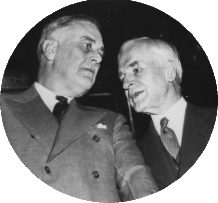French / English teacher
United Arab Emirates, 2011
Differences in US and British teaching
Being a French teacher trainee with the Cordell Hull Foundation in 2003 enabled me to start my career as a proper French teacher and to become fluent in English. While in Minnesota for one year, I learned to teach while adapting my teaching style with the local culture. It enabled me to learn what we can do and what we can’t do. I noticed that an American child needs formal activities and games within the same lesson. I also worked for two summers in a language camp, learning how to teach with rustic materials and live without electricity! I arrived in America with very few words. Thanks to this American experience, I learned English. It was challenging and often frustrating as it was hard to understand people and to be understood. But with perseverance over time, I’ve made it. The American experience gave me confidence in my goal to establish a lifetime teaching profession.
As I adapt myself easily to any place now, I enjoy what I do. I’ve spent six years in England and learned much about the differentiation in teaching. In England, teachers identify the needs of every pupil. Each pupil matters, and the teaching has to be the best for everyone, gifted or not. Classroom management in England is also a real challenge, but with time, we find ways to deal with all situations. I found American pupils much more focussed on their learning. They don’t argue as much with their teachers. They tend to follow advice whereas British pupils never listen to you.
We have to teach British students in a way which does not show them that they are learning. I would call it implicit learning. I had to give up using a book and create interactive activities in order to make them enjoy the language. I now only work with interactive whiteboards and I create all my resources myself. It takes time but the outcome is rewarding. I now think it is time for me to move on and experiment something new. I shall go and work in the Middle East in an International school in order to face new challenges, where more than 60 nationalities are represented within the school. It will be be another challenge. I plan to use Neurolinguistic Programming (NLP) to adapt to the three following learning styles within one class: Kinesthetic, Auditory and Visual.
Moving around the world broadens one’s skill sets, which no one can get when staying in their home country because they become used to habitual patterns of daily living. Traveling and working abroad also gives opportunity to meet plenty of interesting people and friendships that last forever.






